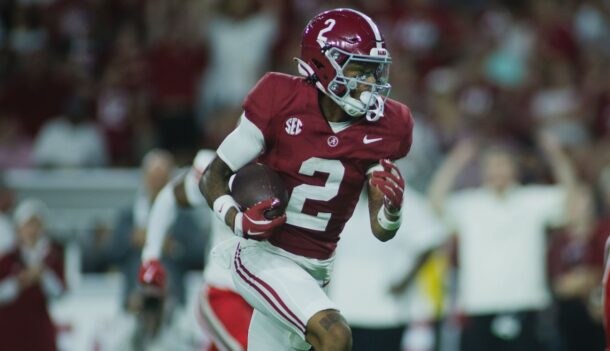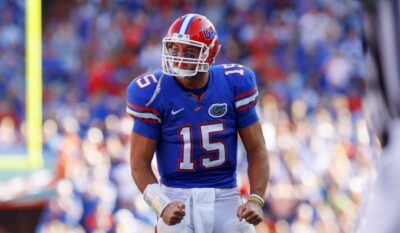
LSU, Clemson have the DBs to make the difference in championship game
By Les East
Published:
Joe Burrow and Trevor Lawrence are the lead players in the CFP Championship Game.
Both quarterbacks have lots of playmakers to throw to.
They’ll make plays, gain yards and score points.
But LSU and Clemson have really good defensive backs as well. Lots of them.
They’ll make plays, and limit yardage and points.
They might even create a turnover or two. One might even produce points like Clemson cornerback A.J. Terrell did in last year’s championship game when he intercepted Tua Tagovailoa and returned the ball 44 yards for Clemson’s first touchdown and set the tone for a 44-16 romp.
Understandably much attention is being paid to how well Burrow, LSU’s Heisman Trophy winner, and Lawrence, who’s 25-0 as a starter, fare against the best secondary either has faced this season.
How well those defensive backs hold up – mentally as well as physically – could make the difference in this game.
If someone picks off Burrow or Lawrence – or even forces an incompletion or two at a critical juncture in the game – that could be the difference.
Breaking serve on either QB will be huge – and these DBs are just the guys who can do it.
Clemson has allowed the fewest passing yards in the country — 151.5 per game. They’re No. 3 in interceptions with 19.
Ohio State’s Justin Fields entered the Playoff semifinal at the Fiesta Bowl having thrown 40 touchdowns and 1 interception. Against Clemson he threw 1 touchdown. He threw 2 interceptions.
Nickelback Nolan Turner sealed the 29-23 victory when he intercepted Fields in the end zone to end the Buckeyes’ last possession.
The Clemson secondary is, of course, very talented. It’s also experienced with 4 of the top 5 members back from last year’s championship team.
Last year’s secondary had a couple of rough outings – early in the season against Texas A&M and in the regular-season finale against South Carolina. But it was dominant in the CFP wins against Notre Dame and Alabama.
CB Derion Kendrick, a converted wide receiver, joined a group that already included safeties Tanner Muse and K’Von Wallace for this season.
They faced Fields and the Buckeyes. They help very well. They made game-turning plays.
Now they get Joe Burrow and the LSU passing game.
The LSU secondary has taken some lumps this season, just as Clemson took its couple last season.
Texas had a big game throwing the football, Florida had a nice half before being shut down, Alabama had a big second half before Burrow put the game away.
But those LSU defensive problems are so 2019.
The defense as a whole and the secondary in particular have turned things around.
Safety Grant Delpit, a unanimous All-American last season, fought through injury much of the season. He’s healthy now and made 2nd-team All-America despite a slow start.
Freshman cornerback Derek Stingley Jr. was named 1st-team All-America. The 5-star recruit from Baton Rouge never played like a freshman and now he has played in 14 games.
The other starters – cornerback Kristian Fulton, safety JaCoby Stevens and nickelback Kary Vincent Jr. – all have played key roles for LSU through early-season lineup changes and late-season stability.
LSU is tied for 5th in the country with 17 interceptions, just 2 fewer than Clemson, but statistically, LSU lags behind.
While Clemson is tops in passing yards allowed, LSU is just 56th, allowing 221.9 yards per game. But that’s a bit misleading.
LSU opponents have thrown 100 more passes than Clemson’s opponents, naturally leading to more yards.
When it comes to yards per attempt, Clemson is still No. 1 (5.52), but LSU is much closer, ranking 22nd (6.42).
But the story of these defensive backs in this game isn’t likely to be told by strictly numbers. Sure, both teams want to be the one to allow the fewest completions, yards and certainly points.
In the end, though, this is about facing elite passers and elite catchers with a national championship game on the line.
The defensive backs that allow the fewest big plays – and can make a couple of their own – will be the winners.
Les East is a New Orleans-based football writer who covers LSU for SaturdayDownSouth.com. Follow him on Twitter @Les_East.







